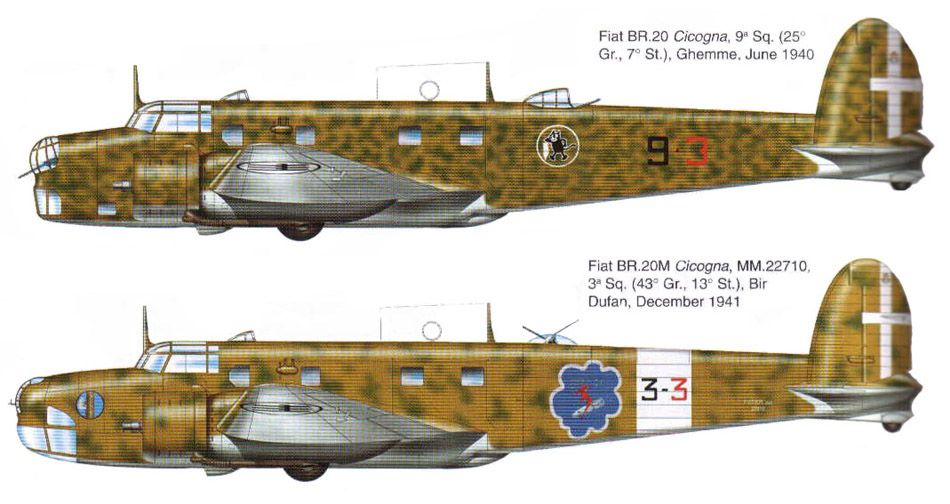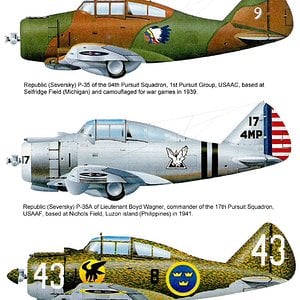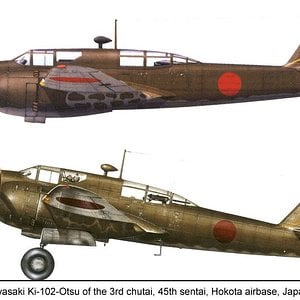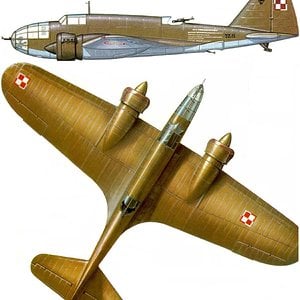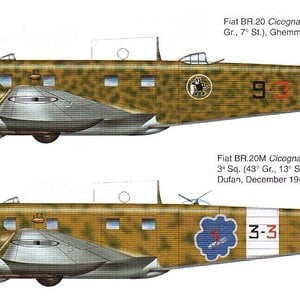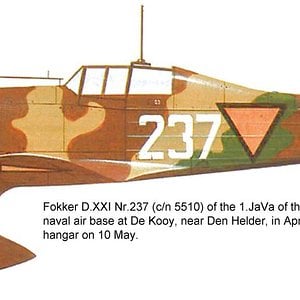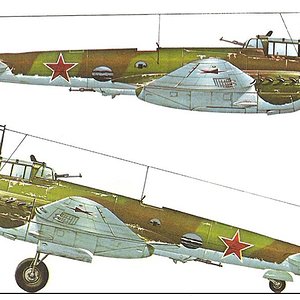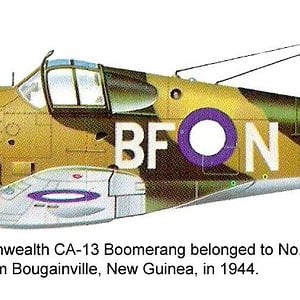Navigation
Install the app
How to install the app on iOS
Follow along with the video below to see how to install our site as a web app on your home screen.
Note: This feature may not be available in some browsers.
More options
You are using an out of date browser. It may not display this or other websites correctly.
You should upgrade or use an alternative browser.
You should upgrade or use an alternative browser.
The Fiat BR.20 Cicogna (Stork) was an Italian twin-engine bomber with initial deliveries being made to the Regia Aeronautica in September 1936, and saw service in the Spanish Civil War, Second Sino-Japanese War and World War II. The main task of the BR.20 was medium-range bombing. It had many features that were very advanced for its time: with a maximum speed of over 400 km/h (250 mph) and a high cruise speed of 320 km/h (200 mph), it was as fast as aircraft like the Tupolev SB light bombers. The range and payload were also very good. Although the BR.20 was Italy's standard medium bomber in the mid-1930s and had proven effective in the Spanish Civil War, it was already obsolescent by the time Italy entered the war.
Following Nazi Germany's invasion of France in April 1940, and with German forces pushing deep into France, Italy declared war on France and the United Kingdom on 10 June 1940.
In a famous battle on 11 November 1940, a formation of 10 BR.20s, escorted by Fiat CR.42 biplane fighters on a daylight raid on Harwich, was intercepted by RAF Hurricanes. Despite the escort, three bombers were downed (together with three CR.42s) and four damaged, with no loss to the Hurricanes. Winston Churchill commented on this raid, which occurred on the same day as the Fleet Air Arm's attack on Taranto: "They might have found better employment defending their Fleet at Taranto."
Source:
Info: Wikipedia
http://en.wikipedia.org/wiki/Fiat_BR.20
Profile: Zulloweb
http://www.zulloweb.org/photo/aviation/RA_AMI/index_4.html
Following Nazi Germany's invasion of France in April 1940, and with German forces pushing deep into France, Italy declared war on France and the United Kingdom on 10 June 1940.
In a famous battle on 11 November 1940, a formation of 10 BR.20s, escorted by Fiat CR.42 biplane fighters on a daylight raid on Harwich, was intercepted by RAF Hurricanes. Despite the escort, three bombers were downed (together with three CR.42s) and four damaged, with no loss to the Hurricanes. Winston Churchill commented on this raid, which occurred on the same day as the Fleet Air Arm's attack on Taranto: "They might have found better employment defending their Fleet at Taranto."
Source:
Info: Wikipedia
http://en.wikipedia.org/wiki/Fiat_BR.20
Profile: Zulloweb
http://www.zulloweb.org/photo/aviation/RA_AMI/index_4.html

